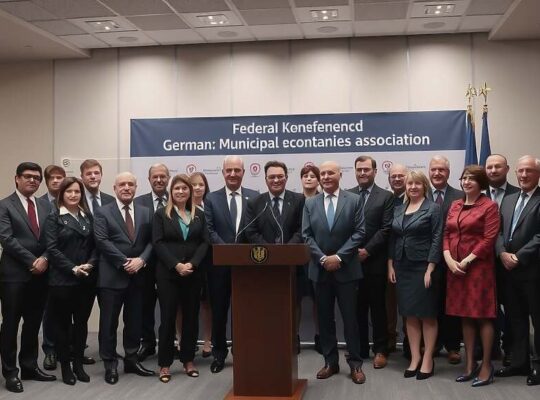The number of companies listed in Germany’s national competition register, maintained by the Federal Cartel Office, has seen a substantial increase. This is revealed in a response from the Federal Ministry for Economic Affairs and Energy to an inquiry from the Left Party, as reported by newspapers within the Funke-Mediengruppe.
The register, an electronic database, tracks companies found to have committed specific economic offenses. Currently, it includes 21,456 companies as of March 31, 2024, marking a significant rise from 4,632 at the end of 2022.
Companies listed in the register face potential consequences, notably exclusion from public procurement contracts where the contract value exceeds €30,000. A significant portion of the increase relates to violations of Section 266a of the Criminal Code, primarily concerning employers failing to pay or correctly remitting social security contributions. The number of companies associated with these violations has risen from 2,271 to 9,847. The register also documents violations of the Posted Workers Act (AEntG), the Minimum Wage Act (MiLoG), the Temporary Work Act (AÜG) and the Law on Combating Illegal Work (SchwarzArbG).
The German government is planning to revise rules governing public procurement and intends to discuss a draft law next week. A key component of the draft includes raising the threshold for exclusion from public tenders due to a competition register listing. Currently, companies are excluded if contract values exceed €30,000; the proposal seeks to increase this to €50,000.
Left Party representative, Meiser, has voiced strong criticism of this planned adjustment, alleging it aims to facilitate public contracts for companies engaging in unlawful practices. He also pointed out that the draft law includes measures to streamline public procurement procedures, potentially diminishing the obligation for procurement bodies to consult the competition register.
Meiser emphasized that legitimate companies adhering to legal frameworks will ultimately be disadvantaged by the changes, struggling to compete on cost against those employing questionable practices. He is urging revisions to the draft law to maintain the existing consultation requirements for the register. He argues that business models reliant on illegal practices should not be rewarded with public funds via contracts.
A spokesperson for the Federal Cartel Office noted that the register was established in 2021, with a mandatory reporting requirement commencing on December 1, 2021. The rise in listed companies is therefore considered a natural consequence of the introduction of the new system and it is premature to draw definitive conclusions about emerging trends.












